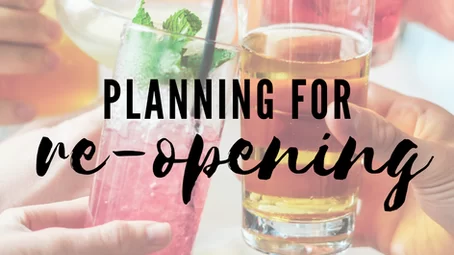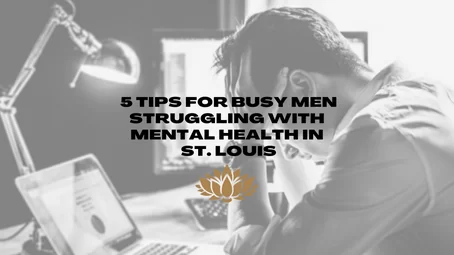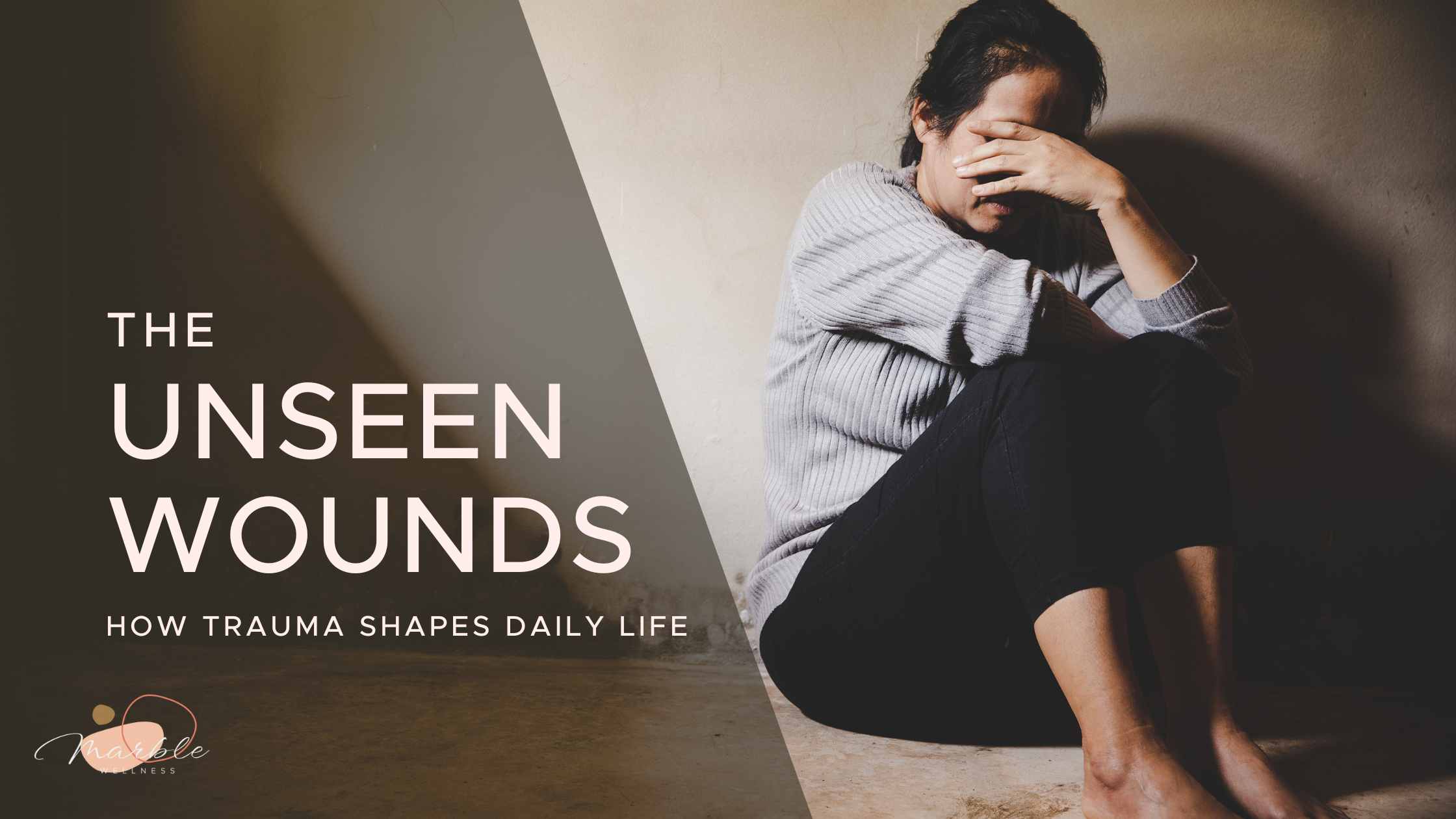Things are starting to open — or the date for them to reopen is approaching — and it likely has you feeling all sorts of different emotions, even if you haven’t really slowed down to think about it.
On the one hand, you are *so* ready to get back out there — see friends and family; run errands; sit on a restaurant patio; plan playdates for your kids. Thoughts of these activities as you know them elicit joyful anticipation.
On the other hand, you recognize returning to these activities won’t look how it did just two months ago. And not only that, you’re not even exactly sure how it *will* look. Will everyone be in masks? Will restaurants reduce the number of tables in their dining rooms? Will stores tend to limit the number of shoppers in them? And these thoughts may start to spike anxiety — a feeling you maybe have grown altogether too used to experiencing of late.
As a mental health therapist, my huge recommendation for all of us right now is to think through how we — as individuals and as individual families — are going to handle the reopening of states and businesses prior to that reopening date.
We may have a tendency to turn away from that thought process to avoid the spike in anxiety I just mentioned. After all, it’s certainly not fun to sit in that feeling and to let it grow as you continue to imagine the difficulty of those decisions and the sadness you feel that things won’t immediately return to their pre-quarantine normal.
Here’s the thing though: ignoring that anxiety doesn’t mean it will go away. Instead, actually turning and facing this thought process does us a favor in the long-run. It allows us to formulate parameters, expectations, and predictability — all factors that help reduce fear and anxiety. I encourage you to sit down and have a conversation first with yourself, and then with whomever you live, to get clear on what you feel comfortable doing moving forward; how you will continue to evaluate your decisions about being out and about; and how you will handle discomfort in this time of transition.
If we don’t think about these questions now, we will have to engage in that thought process every single time we leave the house to do something-which can get exhausting and frustrating! We’ve all had enough of that in these quarantine times.
Instead, setting up some contingency plans (“if this, then that”) will allow us to move with a little more freedom, a moderately greater amount of energy, and way less emotional angst.
Here are a few suggestions from a St. Louis MO Therapist in Ballwin of how you can apply some strategies to moving forward:
1. Reflect
Reflect on any types of activities that you just want to eliminate as an option for “x” amount of time (that could be the remainder of the calendar year or for 3 months). Big examples: air travel; events with larger crowds. Smaller examples: eating in a restaurant; visiting a grandparent.

For these types of events, your brain and mental state may benefit from saying “I’m just not going to engage in “x” activity until “x” time.” Done. Conversation over. Decision made.
2. Re-Evaluate
Set up a “re-evaluation” criteria for other decisions (or even for the above activities). This re-evaluation criteria could be an amount of time (30 days, 6 weeks, etc) or it could be by available information/data. That way, your brain isn’t scanning for updates on a daily basis because it knows that there is a scheduled update time. Trust me, this process works!
3. Be Flexible
Expect your own feelings to change as things unfold. You may be more comfortable than you expect or less comfortable. That’s ok! Allow flexibility and compassion for yourself. For those of you who experience those changes to your own decisions about how you’ll be in post-quarantine, please keep in mind that ongoing conversations with your “roommates” (put in quotations in the instances that is a spouse, children, and/or parents, etc) will be critical here—just because your comfort is changing, doesn’t mean theirs is, and you are part of a bigger organism as a family member. Staying open about your evolution of comfort level is key to maintaining healthy relationships with those important people in your life.

4. Be Understanding
Understand how your family members and/or close friends are making their decisions. This may influence how you make your decisions. But can especially help you avoid disappointment if you are gearing up for something they are uncomfortable in participating in or vice versa. There will be a period of time that there are many levels of comfort and discomfort in being out and about again. And that’s okay! Having an understanding of how your family and friends are planning to move through the next few months is much like knowing dietary restrictions when planning a dinner party—it just makes it easier to plan when you have the relevant information, instead of scrambling to adjust after you’ve done most of the work.
5. Prepare Mentally
Know that people are going to make different decisions than you. Know that you will disagree with how some people are handling re-opening. Know that you might feel additional emotions about other people’s decisions. Preparing for that impact can help minimize it. You’ve already been quarantined for about 6 weeks; you don’t want to lose your marbles about someone else’s decision that doesn’t align with yours and have the joy of being back out and about eroded by that reaction.
6. Prepare Emotionally
Prepare for some emotional discomfort at being back out. It’s going to feel very normal in some ways, very eerie in others, and you might not know how to feel at other times. Often, we can get in our own heads about how we feel and the emotion is amplified from there, and the intensity becomes so uncomfortable we head back home or have a bad rest of the day. Again, don’t let yourself be robbed of time back out in your community! Some expectations of distress allow you to think, “okay, this is fine to feel this way because I anticipated it and I can move through it.” One of the amazing things about humans is our innate programming to habituate—we will adjust to the “new normal” but we have to give it a little time and a little patience.
7. Continue to practice self-care after the stay-at-home order is lifted
Read that again, and then again. There may be a tendency for some people to discard the habits, routines, or other practices they’ve implemented in quarantine to keep their wits about them. And that tendency is understandable….but not necessarily encouraged. Those habits that have maybe been your lifeline to sanity can maybe morph into habits that encourage internal calm and maybe even happiness. By the very nature of getting back to more interactions with others, we will feel some lifting of spirits and loosening of the “white knuckling” we’ve been doing. Which means our sanity won’t be so much hanging in the balance. Which also means the impact of those self-care activities can shift to a different part of us. In other words, keep the habits and expect that their purpose/impact may fall elsewhere, but that elsewhere could feel awesome.

8. Know this is not Permanent
Remember that some of the “new normal” is not a permanent new normal. I don’t know what those practices may be, but there will be some changes we experience in the short-term that likely won’t remain as an everlasting practice. This understanding can help you temper some frustrations about the adjustments that are being made as we return to moving through society again.
Hopefully this covers some helpful ground and also makes thinking about reopening a little less overwhelming and scary. We are still all in this together and with just a little planning and setting of expectations, your transition to life after quarantine can be without significant emotional pitfalls.
Talk to you soon!
Start Therapy for Mental Health in St. Louis
If you live in St. Louis and are ready to improve your mental health, we are here to help.
Contact Us!

Additional Counseling Services at Marble Wellness in St. Louis, MO and Chicago, IL
Counseling services designed to help set you on a path of living a more fulfilled, calm, and happy life.
St. Louis
Our St. Louis team of therapists have a variety of training backgrounds and areas of expertise. We specialize in anxiety, depression, grief, chronic illness, therapy for men, couples, and maternal overwhelm. We can also help new moms with various postpartum concerns, moms in the thick of parenting, and moms with teens. We can also chat from wherever you are in the state with online therapy in Missouri and online therapy in Illinois. No matter where you are in your journey, we would love to support you.
Chicago
Our Chicago team of therapists offer a wide range of mental health services to help our clients through the different challenges and hurdles in their life. In addition to anxiety, depression, grief, therapy for men, and maternal overwhelm, we are specialized in professional burnout, therapy for breakups, and love partnering with working moms.



